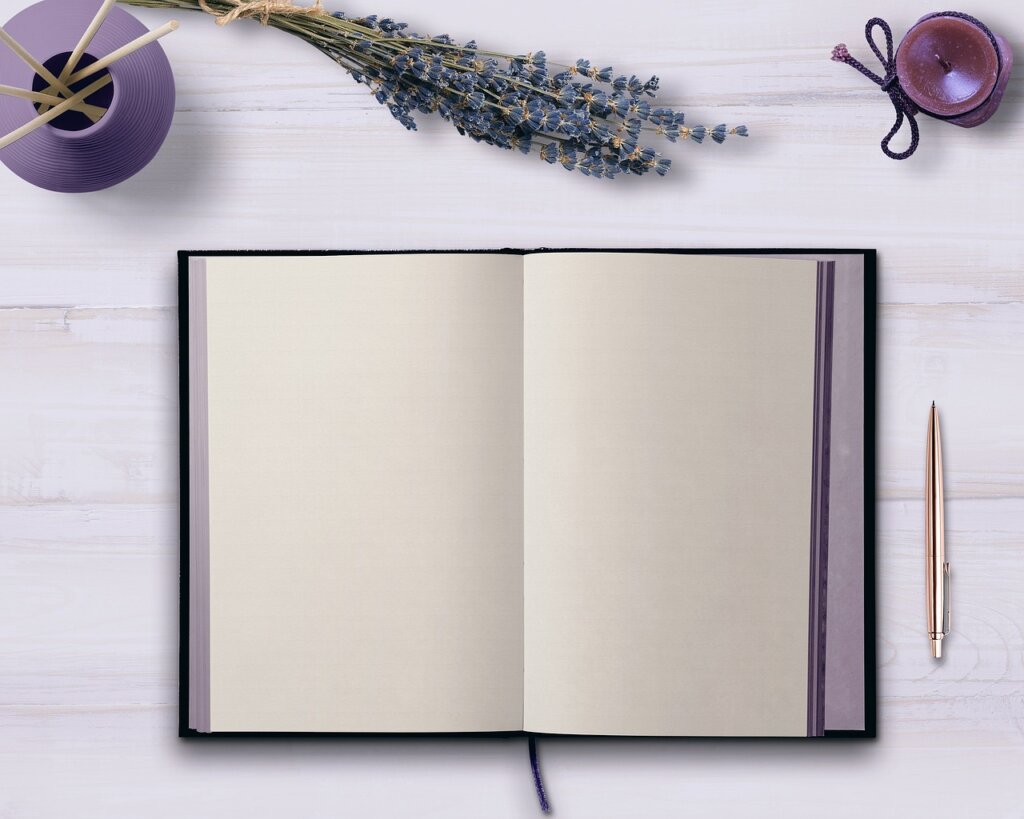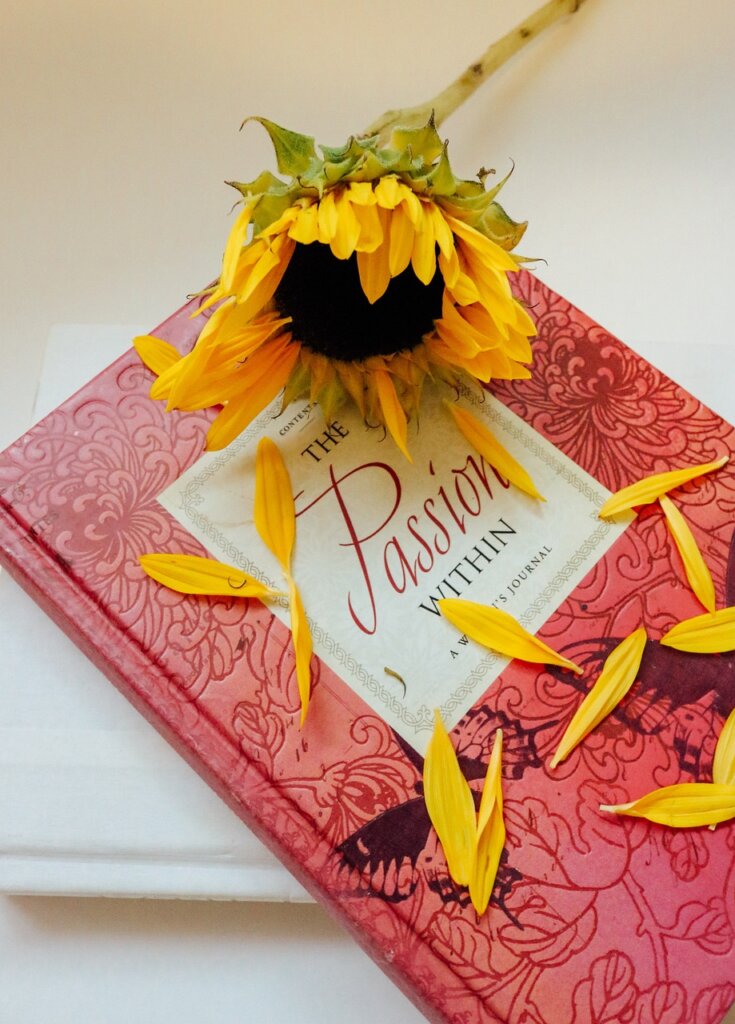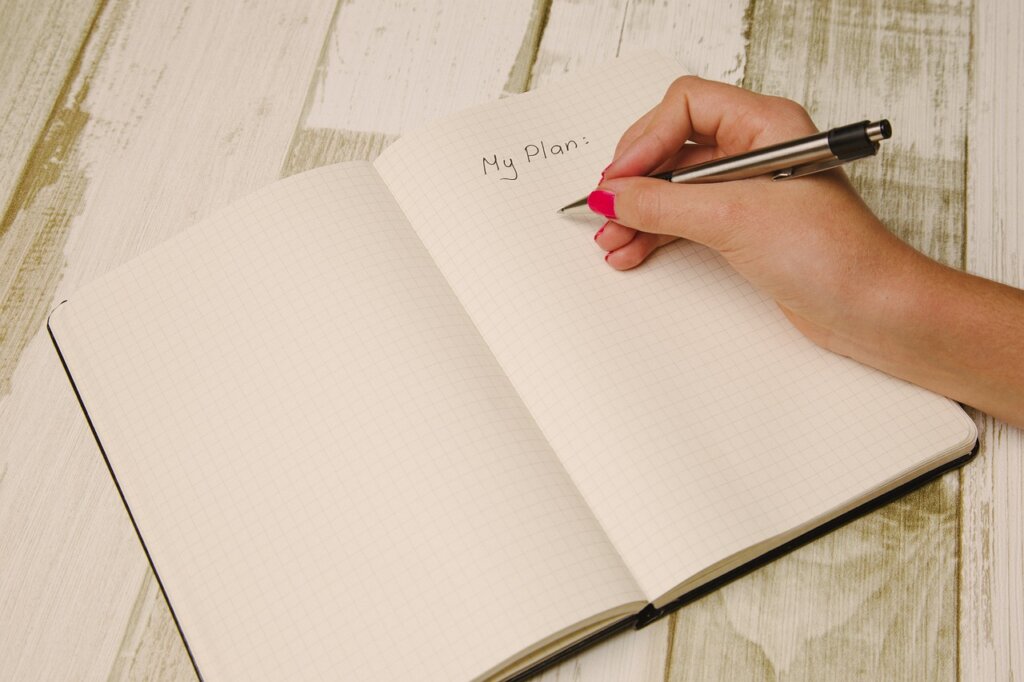As a beginner journal writer, getting started can feel overwhelming. Staring at a blank page in front of you, just wondering where to begin. Don’t worry my friend, I’ve got you covered!
Here is your very own journaling guide for beginners. So grab your favorite notebook and pen, and let’s dive into the wonderful world of journaling!

How to Start a Beginner Journal
Journaling is a powerful habit that can have a life-changing impact. Whether you’re new to journaling or looking to explore it further, this article will guide you through the process of starting a beginner journal.
As a beginner journal writer, it’s important to start by setting up your journal in a way that feels comfortable and inviting. This will help you establish a routine and make the journaling experience more enjoyable. Here are some key steps to consider:
Choose the Right Journal
There are various types of journals available, such as lined, blank, dotted, even guided journals. Choose one that suits your preferred aesthetics and needs.
Consider factors like paper quality, size, and binding. If you’re into creativity, you might opt for a sketchbook or an art journal.

Don’t overthink this one. Does it make you want to write, smile, and feel good in your hands? It’s the one!
Pick the Perfect Pen
I recommend having one that is just for this purpose. Find a pen that feels comfortable to hold and writes smoothly (or pencil for my ‘must be able to erase’ crowd 😊). Whether you prefer a ballpoint pen, gel pen, or fountain pen, choose one that suits your writing style.
Experiment with different pen options to find the one that feels right for you. Using a pen that you love will make the act of writing in your journal more enjoyable.

Set the Ambience
The right lighting, sound (ambient sounds, relaxing music, or lovely silence), mug of something hot and delicious, and cozy surroundings.

Find your inspirational location and nestle in for some quality writing!
Schedule Time to Journal
Anytime you start something new, it is essential to create habits that ensure you continue on track.
Make time at least once per week to write, even if its just a note or two. The more practice, the more natural and engrained into your schedule it will become.
Reasons for Journaling
It’s easy to feel overwhelmed and disconnected from ourselves and others. Journaling provides a space for self-reflection and self-expression, allowing you to navigate the chaos and find clarity.
Here are a few reasons why journaling is a life-changing habit:
- Self-awareness: Journaling helps you understand your thoughts, feelings, and values on a deeper level. It provides a safe space to explore your inner world and gain insight into who you are.
- Emotional release: Writing in a journal help you release pent-up emotions, process challenging experiences, and find emotional healing.
- Goal setting: Clarify your goals and aspirations. By writing them down, you bring them to life and increase your commitment to achieving them.
- Problem-solving: When faced with challenges or difficult decisions, journaling provides a platform to brainstorm ideas, analyze options, and gain a fresh perspective.
- Personal growth: Consistent journaling promotes self-reflection, self-acceptance, and self-improvement. It helps you track your progress and celebrate your achievements.
Benefits of Journaling
Journaling offers a wide array of benefits that can positively impact your mental, emotional, and physical well-being.
Here are a few key benefits to inspire you:
- Stress reduction: Writing about your worries, fears, and stressors can provide relief and help you better manage stress.
- Improved clarity: Journaling helps organize your thoughts, making complex situations or challenges easier to understand and navigate.
- Enhanced creativity: By engaging in regular journaling, you can tap into your creative potential, discover new ideas, and find inspiration.
- Emotional healing: Expressing your emotions on paper promotes emotional healing and can be a valuable tool for processing trauma or difficult experiences.
- Boosted self-confidence: Journaling allows you to reflect on your achievements, strengths, and personal growth, boosting self-esteem and confidence.

Different Types of Journals
There are various types of journals you can choose from based on your interests and goals. Here is a list of examples you can try: (this one goes to 11)
- Gratitude Journal: Write down things you are grateful for each day. It cultivates a positive mindset and enhances your overall well-being.
- Dream Journal: Record your dreams upon waking up. It can provide insights into your subconscious mind and spark creativity.
- Travel Journal: Capture your travel experiences, memories, and observations. It allows you to relive your adventures and preserve cherished moments.
- Reflective Journal: Dive deep into your thoughts and emotions. Reflect on your day, explore your feelings, and gain valuable self-awareness.
- Goal Journal: Set and track your goals, both short-term and long-term. It keeps you accountable and motivated to achieve your aspirations.
- Free-Flowing Thoughts Journal: The freedom to explore your innermost thoughts, uninhibited by judgment or structure. Embrace this blank canvas and let your thoughts flow freely onto the pages.
- Artistic Doodler Journal: Combine words and images to create an aesthetic work of art that captivates your mind. You could even create a collage or memory board. Grab your art pens and start creating!
- Bullet Journal: helpful in enhancing productivity, creates organization for thoughts, tasks and goals.
- Fitness Journal: track your workouts, monitor your calories and food choices, examine progress, even assess your mental health.
- Memory Journal: reflect on important moments in your life, celebrate milestones, record everyday experiences, or simply reflect on current or past life lessons.
- Prompted Journaling: Here, you start with a question, idea or suggestion to spark your creativity as you begin (more on this later!)
Remember, the key to starting a beginner journal is to find a style and approach that resonates with you.
Experiment with different journaling techniques and make the process your own.
What Should I Start Journaling?
If you’re new to journaling and unsure of where to start, don’t worry! Finding the perfect starting point can be a challenge, but with a little guidance, you’ll be on your way to journaling success.
Just Get Started
The best way to begin your journaling practice is simply to start writing. There’s no right or wrong way to journal, so don’t worry about making it perfect.
Grab a pen and paper or open a blank document on your computer and let your thoughts flow. Write about anything that comes to mind, no matter how big or small.
This freestyle journaling can be a wonderful way to express yourself and get your thoughts and feelings onto paper.

Prompts for Beginner Journaling
Here are a list of helpful prompts to get your creativity rolling.
Happy writing!
1. Describe your perfect day
2. Write a letter to your younger self
3. List your favorite quotes
4. Reflect on a recent accomplishment
5. Write about something that brings you joy
6. Explore a childhood memory
7. Describe your dream destination
8. Write a gratitude list
9. Explore your fears and insecurities
10. Imagine your ideal future
11. What emotions do you feel right now
12. What is your favorite self-care activity
13. What is a valuable life lesson you’ve learned recently
14. What are five things you want to do or achieve in your lifetime
15. Describe your surroundings
16. Describe your ideal vacation

17. What is a difficult situation you are currently facing
18. Who is your favorite fictional character
19. What is your favorite fictional place
20. Write a letter to your future self
21. Write a poem, song or short story
22. Who brings out the best version of you and why
23. What was the most memorable gift you have ever received

24. What makes you anxious or mad that probably shouldn’t
25. What can you be grateful for every morning
26. What is your favorite accomplishment
27. What activities, hobbies or interests bring you the most joy
28. Reflect on your current self-care routine
29. Describe the scene, emotions and significance of a major moment in your life
30. What is the next major achievement you are planning
31. Recap your day
32. Describe a moment of mindfulness you experienced today
33. What are ways you can simplify your life right now
34. What are things you own you can give away or donate today
35. What is a project or activity you keep putting off
36. Describe a time you laughed very hard
37. Describe your ideal morning routine

38. Describe your ideal nighttime routine
39. Reflect on a book or movie that impacted you
40. What are 5 things you want to achieve this week
41. Write a stream of consciousness for 10 minutes

Here’s an extra article on journal introduction ideas if you want more info on this!
Conclusion
Journaling is a powerful tool for self-reflection and personal growth. Whether you’re a beginner or an experienced writer, there are plenty of techniques, types, and prompts to get you started on your journaling journey.
Remember, the key is consistency and finding a style that works for you. So grab your new favorite aesthetic notebook, pick up that special pen, and let your thoughts flow onto the paper. Happy journaling!
What’s your favorite style of journaling? Do you have a favorite prompt? You can let me know all about it in the comments below!
Care for an article on slow living? How about a list of quotes on quantity over quality?
Until next time, stay cozy my friend.





